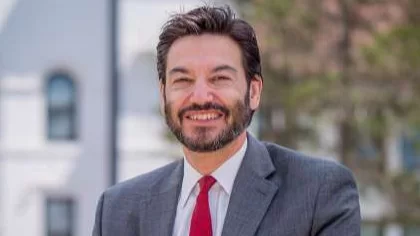President Jonathan Koppell | Official website of Montclair State University
President Jonathan Koppell | Official website of Montclair State University
Elected Officials Visit Montclair to Announce Mental Health Services Funding
On Tuesday, May 7, New Jersey Lieutenant Governor Tahesha Way and Secretary of Higher Education Brian K. Bridges visited the Montclair State University campus to announce New Jersey college students will have free, 24/7/365 access to teletherapy, crisis connection, and wellness programming through the remainder of the Murphy Administration.
Launched one year ago, the state’s first-in-the-nation partnership with mental health and wellness platform, Uwill, currently serves students at 45 eligible institutions of higher education in New Jersey who opted into the partnership.
Assemblywomen Linda Carter (D-22), Rosaura Bagolie (D-27), and Andrea Katz (D-8) joined Montclair President Jonathan Koppell and Counseling and Psychological Services Director Jaclyn Friedman-Lombardo in praising the initiative during the midday program, which also featured remarks from Uwill Founder and CEO Michael London.
“During trying times, it’s more important than ever that we work together to ensure everyone feels seen and supported,” says Koppell. “While we can’t always change the world around us, we can foster a culture that empowers our students and employees to overcome obstacles, and provide them with the resources to thrive. We are grateful for the state’s commitment to investing in services like Uwill, and are relieved that today’s announcement means thousands more students across the state will have the opportunity to get the support that they need.”
“Given the increased need for mental health support, Montclair State University’s Counseling and Psychological Services [CAPS] has been eager to partner with Uwill to increase access and provide an option for longer-term care for students,” says Friedman-Lombardo. “The telehealth program is particularly useful in filling service gaps for students who commute, prefer virtual support, and/or need services after business hours and on weekends. The partnership has also allowed CAPS staff to focus efforts on prevention as well as addressing crises and more acute clinical issues.”

 Alerts Sign-up
Alerts Sign-up